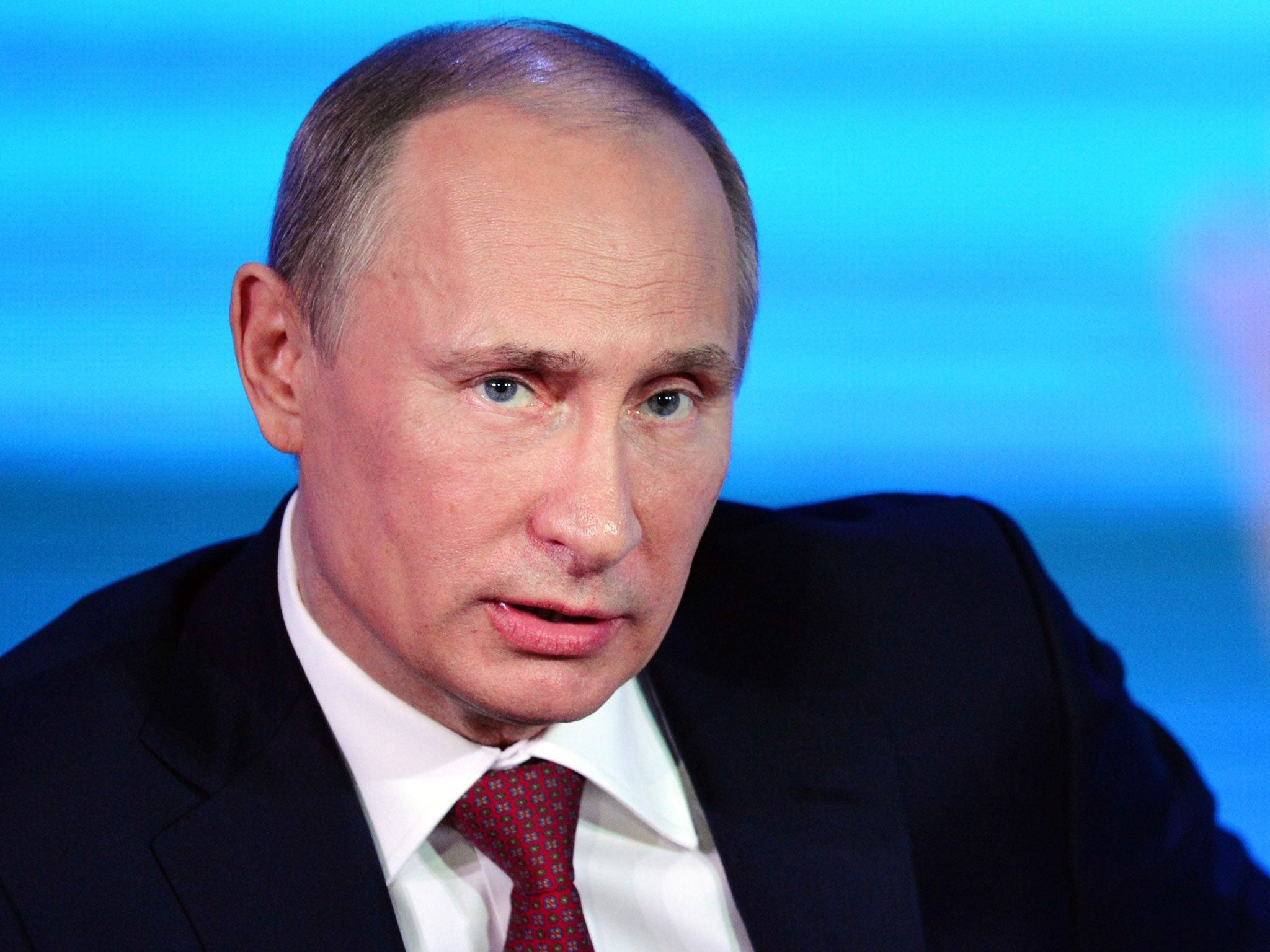
Your support helps us to tell the story
From reproductive rights to climate change to Big Tech, The Independent is on the ground when the story is developing. Whether it's investigating the financials of Elon Musk's pro-Trump PAC or producing our latest documentary, 'The A Word', which shines a light on the American women fighting for reproductive rights, we know how important it is to parse out the facts from the messaging.
At such a critical moment in US history, we need reporters on the ground. Your donation allows us to keep sending journalists to speak to both sides of the story.
The Independent is trusted by Americans across the entire political spectrum. And unlike many other quality news outlets, we choose not to lock Americans out of our reporting and analysis with paywalls. We believe quality journalism should be available to everyone, paid for by those who can afford it.
Your support makes all the difference.The upper chamber of Russia's parliament today unanimously voted in favour of a measure banning Americans from adopting Russian children. It now goes to president Vladimir Putin to sign or turn down.
All 143 members of the Federation Council present voted to support the bill, which has sparked criticism from both the United States and from Russian activists who say it victimises children by depriving them of the chance to escape often-dismal orphanages.
The bill is one part of a larger measure by angry MPs retaliating against a recently signed US law that calls for sanctions against Russians deemed to be human rights violators. Putin hasn't committed to signing the bill, but has referred to it as a legitimate response to the new US law.
Some top government officials, including the foreign minister, have spoken flatly against it, arguing the measure would be in violation of Russia's constitution and international obligations.
But Mikhail Margelov, chairman of the Council's foreign affairs committee, referred to the bill as "a natural and a long overdue response" to the US legislation.
"Children must be placed in Russian families, and this is a cornerstone issue for us," he said.
Several people with posters protesting against the bill were detained outside the Council before the vote. "Children get frozen in the Cold War," one poster read.
There are about 740,000 children without parental custody in Russia, according to Unicef. More than 60,000 Russian children have been adopted in the United States in the past 20 years.
The bill is named in honour of Dima Yakovlev, a Russian toddler who was adopted by Americans and then died in 2008 after his father left him in a car in broiling heat for hours. The father was found not guilty of involuntary manslaughter. Russian lawmakers argue that by banning adoptions to the US they would be protecting children and encouraging adoptions inside Russia.
Russian children rights ombudsman Pavel Astakhov told the Interfax news agency that 46 children who were about to be adopted by US citizens would stay in Russia if the bill is adopted - despite court rulings in some of these cases authorising the adoptions.
The ombudsman supported the bill, saying that foreign adoptions discourage Russians from adopting children.
"A foreigner who has paid for an adoption always gets a priority compared to potential Russian adoptive parents," Astakhov said. "A great country like Russia cannot sell its children."
The Russian law allows foreign adoptions only if a Russian family has not expressed interest in a child in question.
Margelov said that a bilateral Russian-US agreement binds Russia to notify of a halt in adoptions 12 months in advance.
Putin's spokesman Dmitry Peskov told Russian news agencies that the president would consider the bill within the next two weeks.
AP
Join our commenting forum
Join thought-provoking conversations, follow other Independent readers and see their replies
Comments